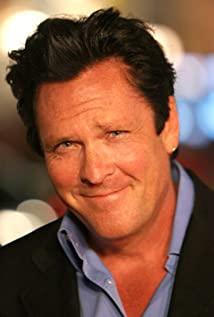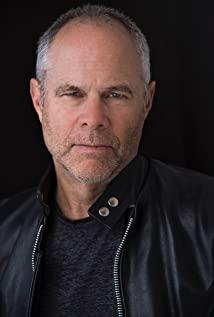1.
Sex is not an unfamiliar entry point in this type of film. Almost in a large number of films, when it comes to the violation of women, the first and foremost is to use "sex" as its specific expression and example.
Therefore, at the beginning of the film, the storyline started from the point where Selma was raped and Louis shot and rescued.
It's true that many people, including me, feel that attempted rape will not kill you. What's more, the attempted rape had already terminated his behavior at the time, and it was his insulting language that finally provoked Louis to shoot and kill him.
At that time, when I put this insulting language into the environment at that time, I could really appreciate what kind of existence women were surrounded by men's perspectives reflected from this tiny detail. Therefore, as a woman who is well versed in the world, Louis was wary of such a wolf-like man when he first walked into the bar. The reflection of this male perspective is more prominent in "The Beautiful Legend of Sicily". Whether it is actually being slept in or lusting in her mind, the heroine is sexualized. And what is more insulting than sexualization, up to now, scolding people is still the highest level of insult.
Step out of the movie, if Thelma was actually raped. According to the general habit of thinking, it is to punish rapists according to legal notarization. But in front of a rogue, he doesn't care about the law at all, so what will act as a deterrent. A wolf has a sheep in front of it, and it violates morality and human nature to mutilate the sheep. In a world dominated by male hormones, from a certain level, it seems that this cruelty can also be displayed. Masculinity. It is this blood type powerlessness and brutality that underlies "masculinity". So once, no matter how a woman faces the world, whether she is a victim or a weakling, the mainstream culture will not sympathize with her, and will even continue to "rape" her sometimes.
So, in a later conversation, Selma told Louis that the police wouldn't believe it in the first place. After all, Selma danced face-to-face with this attempted rape for a minute. Even if everyone believed her and knew that she was a victim, the mainstream moral judgment would not let Selma go Drink at home instead of going to a bar.
This kind of cultural prejudice and irrationality is the real source of more tragedies. In a cold world without empathy and understanding, coupled with the lack of security of reality, many people are free to say "I'm not responsible for other people's own stupidity."
In addition, there is no way to truly protect women from cultural abuse and the usual contempt for women (especially low-quality people) - the key is how to prevent the harm, not after the harm occurs How to compensate.
2.
Compared with Louis, Thelma's characters are fuller and more fluid.
I saw that many people in the short comments said Selma was a fool and set herself on fire. I think it was a year ago that I would have done the same for Selma. However, at this moment, from a purely rational analytical point of view. Selma can be said to be a symbol, which symbolizes the general living and psychological state of many women, and its emergence also has its inevitability.
Selma is a typical female figure, she runs the house, generally does not drink, is unguarded, and has a crony. On the other hand, she tries to have fun, throws away all traditional images, goes out camping, drinks, dances, laughs, and throws away the good girl image.
But why would Selma develop such a person?
Different genders, in many respects, represent different training methods, and the accepted information and rules are also different. When all the "different treatment of men and women" is added up, it will be found that the mainstream culture has never stopped suppressing and restraining women. There are many occasions where men are allowed to appear, when it is considered unreasonable for women to demand the same treatment. In the same way, many behaviors are also unilaterally tolerant to men.
After puberty, women are banned even more. This prohibition would be tyranny if it is exaggerated. Therefore, in order to make life easier for themselves, women gradually learned how to please the mainstream culture. Gradually, they even cunningly realized that their "sex" is not only a humiliation, but also a weapon that they can use to gain more space for themselves and psychological satisfaction.
It's not hard to explain why Thelma likes to be coquettish, but only to attract attention. After all, this is the most effective way for a woman to carry out the act of "conquest" that involves initiative.
But on the other hand, they are still being suppressed and castrated. Perpetually childish, the culture makes women (except, of course, the Chinese are too poor) stay at home after marriage and take care of the housework. The result of this situation is the perpetual childization of women. Before marriage, under the authority of the father, after marriage under the authority of the husband.
So when Thelma's husband angrily asked her to go home tonight.
She finally couldn't hold back, "You are my husband, not my father!"
This kind of small foreshadowing slowed down at the beginning, and it was a good explanation that Selma, when she had nowhere to go, robbed at gunpoint, and even robbed her. Offer to jump off a cliff with Louis.
3.
Another relatively novel aspect of this film is that women are placed as "subjects" to tell the story, and they are "active subjects".
In the past, films about women were often set in more stable and fixed environments, and often showed their struggles and pains under unfair treatment.
And "Crazy Flowers" threw the background of the story into the vast and barren central desert, and at the same time replaced the "stillness" of traditional films with non-stop "escape". It is an extension of subject matter and background.
In the face of bad things, people's negative reactions are also relatively positive and negative. The former chooses violent tendencies such as anger and resistance. And the latter is more about enduring and grief.
In front of two women, when faced with this kind of "joke", they resolutely chose the former. If there was still a struggle triggered by the event itself at the beginning, then in the second half of the film, it slowly turned to the confrontation with this male mainstream culture. If it weren't for that, they wouldn't have to shoot and blow up the car of that wretched driver. It's a bit like a counterattack by the girls. They're no longer obedient and crying little girls, and they'll be boys too. They are helpless tricks to bully people, and they are even more heartless to play.
Until finally, surrounded by the police, at this time, their most suppressed nature of "her" was completely released, and they began to have the masculinity of "brave, perseverance, and unyielding".
The whole film finds a breakthrough in a new perspective in these two desperate women—a radical attempt to change the "other" into the "me".
View more about Thelma & Louise reviews











